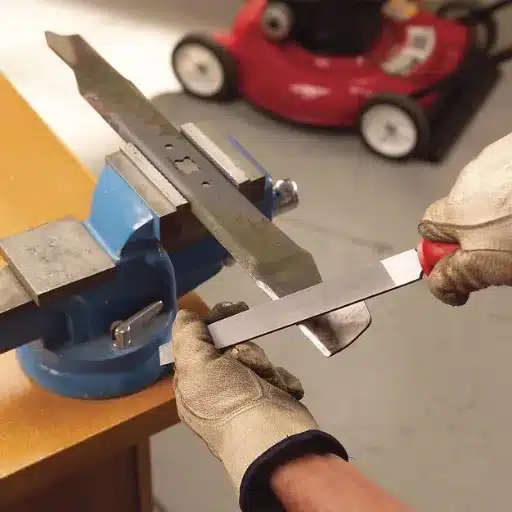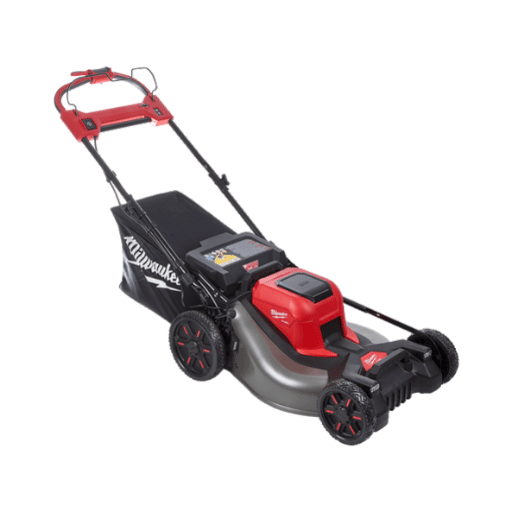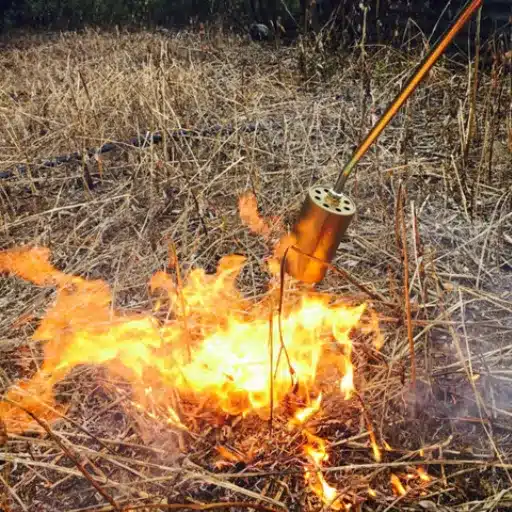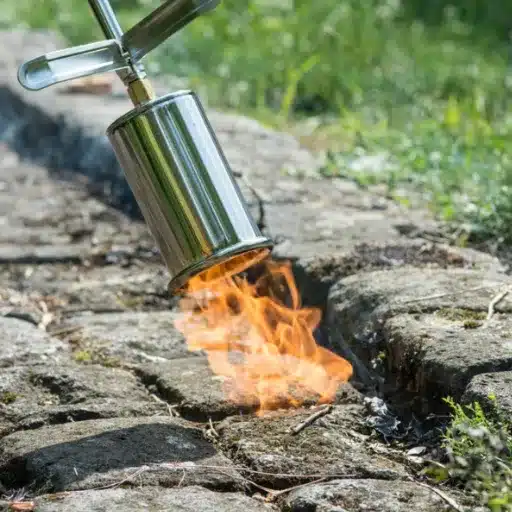Before saying that turning loose change into cash has never really been so easy, let’s first talk about what Coinstar machines are. These convenient kiosks practically flourish in grocery and retail stores, allowing you to turn that annoying pile of coins clinking in your pockets or jar into something more concrete. But what is the process in these machines, and what should you know before cashing in? This article will offer a step-by-step explanation, from understanding the inner workings of Coinstar machines to walking through the steps of getting cash or claiming various options for your change. Perhaps you are wondering about the fees or other redemption options- there’s nothing you need to wonder about anymore. Read on to find out how to make your loose change count in no time.
What is a Coinstar Machine?

A Coinstar machine is a self-service kiosk where coins can be exchanged for cash, eGift cards, or charity donations. The machines are generally placed in grocery stores or other retail outlets. These machines are simple: just deposit coins into them, and they count and sort them. Typically, a percentage for processing is deducted if it is exchanged for cash. However, choosing the eGift card or donation options could work in favor of not having to pay such fees. Coinstar machines are a fast and convenient option to consider should turning your spare change into usable funds appeal to you.
Understanding the Coinstar Machine
CoinStar machines apply advanced technology to sort coins, thus processing large amounts of coins quickly and accurately. They use rotating discs, sensors, and alignment mechanisms to determine a coin’s characteristics based on size, weight, and type. Once the coin has been sorted, it tallies up the total amount and presents the user with choices for cash, eGift cards, or charity donations.
Coinstar Fees and Options
Coinstar machines typically charge a processing fee of around 11.9% for converting your coins into money. You can circumvent that charge by paying with an eGift card. All of the coin value is represented on this card. Popular choices will likely include major retailers: Amazon, Starbucks, and Walmart. Also, this machine will allow you to give right off your change to a whole range of charitable organizations; what a great way to support a cause you care about!
Coinstar by Numbers
Presently, it boasts over 22,000 machines, which operate around the globe in locations like grocery stores, banks, and retail outlets. The machines produce income in ‘billions of coins’ annually and make transactions exceeding $3 billion in value yearly. According to a poll in 2021, it is estimated that almost 85% of Americans still deal with coins regularly, keeping Coinstar up to date. Its presence in several countries gives people a quick outlet to cash in their spare change.
Advantages of Using Coinstar
Coinstar machines provide a quick and easy solution to get rid of loose change in your house or office. It’s faster than rolling your coins and depositing them at a bank. For businesses, Coinstar further saves the trouble of counting and maintaining coins for cash. With varied payout modes and charitable give-back options, Coinstar machines come in handy not just to convert spare change but also to turn those coins into something of use without manual effort.
Different Types of Coin Machines
|
Type |
Key Features |
Best For |
Example Models |
|---|---|---|---|
|
Manual Counters |
Hand-crank operation, low cost |
Small businesses, low volume |
None specified |
|
Electric Counters |
Motorized, faster than manual |
Medium volume, retail |
Ribao CS-600B, CS-610S+PRO |
|
Automatic Counters |
Fully automated, detects counterfeits |
High volume, banks, casinos |
SUZOHAPP SC-303, SC-313 |
|
Coin Sorters |
Sorts coins by denomination |
Retail, vending machines |
SUZOHAPP DTC-6, ICX Active-9 |
|
Coin Wrappers |
Wraps coins into rolls |
Banks, transport |
Glory WS-21 |
|
Counting Kiosks |
Self-service, fee-based |
Retail, supermarkets |
Glory CI-10 |
|
High-Speed Machines |
Processes thousands of coins per minute |
Banks, large-scale operations |
SCAN COIN 350/360, SUZOHAPP SC-3003 |
Benefits of Using a Coinstar Kiosk
|
Benefit |
Description |
|---|---|
|
Convenience |
Quickly converts coins to cash or eGift cards |
|
Charity Donations |
Donate coins directly to partnered charities |
|
No Sorting Required |
Automatically counts and sorts coins |
|
Multiple Redemption Options |
Choose cash, eGift cards, or donations |
|
Wide Availability |
Over 20,000 kiosks worldwide |
|
Fee-Free eGift Cards |
No fees for eGift card transactions |
|
Environmental Impact |
Recycles coins, reducing minting needs |
|
User-Friendly Interface |
Simple and intuitive to use |
|
Supports Trusted Charities |
Partners with reputable nonprofit organizations |
|
Time-Saving |
Processes up to 600 coins per minute |
How Do Coinstar Machines Work

People using the Coinstar machine will start by pouring all their loose change onto a tray. The mechanism counts and sorts coins using its advanced sensors. After the coins have been processed, relevant options present themselves, such as withdrawing the cash, selecting a gift card, or donating to charity. A service fee applies to the cash option; however, gift cards or donations are usually free. The simple, quick, and convenient process is a good way to get some value from loose change.
Steps to Cash in Your Coins
- Locate a Coin Machine
Get online and locate a coin-counting machine in your area, such as one by Coinstar. Current figures show that Coinstar has over 60,000 kiosks worldwide, generally in grocery stores or retail outlets for quick customer access. The online locator tool can help you find the nearest Coinstar location.
- Prepare Your Coins
Prepare your coins: Go through your coins to organize and prepare them if necessary. Clean them off of anything that could interfere with their counting: paper clips, small pieces of paper, anything that’s not a coin. Many people advocate keeping all the coins in one container or bag for ease.
- Pick the Option You Want
At the coin machine, you will empty your coins into the tray and have the machine begin processing and simultaneously display the counted amount on the screen. Once all sorts of coins are tallied and announced, you will be given the option of cashing out (with a service fee of about 11.9%), gift cards, or donations, the latter two of which usually carry no fees.
- Cash Out or Donate
If you decide to cash out, the machine prints you a receipt to redeem at the store’s customer-service counter. If you choose gift cards, you can select from several popular retailers such as Amazon, Starbucks, or Walmart. Charitable donations, on the other hand, send your money to the chosen charities immediately.
- Watch Out for Fees and Policies
You should be aware that fees vary by location and policies may differ, so check in on those matters beforehand. For example, one report states that Coinstar users pay fewer service fees when choosing gift cards or making charity donations than when taking their cash. Always try to find this information on the company site’s pages or at the kiosk.
Choosing Between Cash and eGift Cards
Thinking about cash vs. an eGift card for a transaction may be the best way to separate the pros and cons. Here is a more detailed array with the differences and special perks:
- Cash
Pros
- Immediate liquidity and can be used anywhere.
- Unrestricted in use for anything.
- Perfect for paying bills or conducting daily purchases.
Cons
- There could be a higher service charge at kiosks like Coinstar.
- Physically to be handled is not a good choice.
- No extra promotions available.
- eGift Cards
Pros
- Usually, no service fees are charged for redemption.
- Some kiosks will grant a bonus value or discount with the gift cards.
- An excellent choice for online use or use at a specific retailer.
Cons
- Limited to specific retailers or online usage.
- Cannot be converted to cash.
- Can expire if not used soon enough, based on the issuer’s policy.
Key Details to Consider
Transaction Fees
- Cash might attract higher service fees than an eGift card. Check local kiosk policies to ensure this option is available to you.
Retailer Partners
- eGift cards may usually be given out for particular brands or platforms. Consider if you are okay with the retailer options provided.
Usage Needs
- If you intend to use the funds internationally, cash would be a better option. However, if you mostly use eGift cards from the stores you recently shopped at, then they have more value for you.
Bonuses or Savings
- Sometimes, some kiosks will offer rebates in the form of bonuses if you select the eGift cards. Check these out on an earning basis.
Convenience
- You may spend eGift cards immediately online; cash requires physical handling.
Understanding these aspects will help you make a decision that can complement your monetary needs and preferences.
Handling Loose Change and Pennies
Consolidating loose change and penny accumulation at coin-counting machines, depositing it at banks, or using it for small purchases is useful and practical.
What Fees May Vary with Coinstar?

Coinstar usually charges a fixed fee of about 11.9% to exchange coins into cash. However, depending on the area or the Coinstar kiosk in use, this fee might be different. In the other method, there is no charge for exchanging the coins for an eGift card or donating the amount to a listed charity. Before proceeding, always confirm the fee details on the kiosk screen, so you are fully aware of any charges.
Understanding the Service Fee
Service-wise, the fee generally applies when one attempts to receive cash for their coins, usually about 11.9%. I can avoid the cost if I opt out of money and instead use my coins for an eGift card or donate the amount to charity through the kiosk. It is always essential for me to read the fee information on the kiosk screen so that I can decide accordingly.
Exploring Free Coin Counting Options
|
Option |
Description |
|---|---|
|
eGift Cards |
No fees for converting coins to eGift cards |
|
Charity Donations |
Donate coins directly to charities, no user fee |
|
No Sorting Required |
Automatically counts and sorts coins |
|
Wide Retailer Options |
eGift cards available for many stores |
|
Tax Deductible |
Charity donations are tax-deductible |
|
Promotions |
Look for fee-free promotional offers |
How Does the Counting Process Work?

The Coinstar counting process is straightforward and user-friendly. They simply need to pour their loose coins into the slot. The machine sorts and counts the legitimate coins while rejecting foreign currency or damaged items. When the counting is complete, the bin perchance displays the total amount and offers you several options on how to get your money-cash (with a service fee), an eGift card, or a charitable donation. Go ahead and select your option and follow the on-screen instructions to complete the transaction.
Inside the Machine Processes
From my understanding, processes work by accurately sorting and counting via advanced sensors and mechanisms. They start by identifying the denomination of each coin, which differs in size, weight, and sometimes composition. Any rejected coin enters the return tray, which generally contains foreign or damaged coins. After the sorting phase, the machine tallies the amount and displays the result, ensuring uninterrupted and pleasant processing for the user.
Sorting Coin Denominations
Modern coin-sorting machinery uses precise algorithms and advanced technology to separate and count coin denominations based on their physical characteristics and composition.
Handling Foreign Coins and Counterfeit Issues
| Aspect | Details |
|---|---|
|
Foreign Coins |
Rejected; only U.S. coins are accepted |
|
Counterfeit Detection |
Uses weight and magnetic property checks |
|
Unacceptable Items |
Rejects silver dollars, steel pennies, etc. |
|
Machine Jams |
Caused by dirty or non-coin objects |
|
Accuracy |
Highly accurate coin authentication |
|
Security |
Prevents counterfeit and fraudulent coins |
What Happens After Coins Have Been Counted?

After the coins have been counted, the total equivalent is shown, while the sorted coins are directed into sub-compartments or bags depending on their denominations. These coins are ready for collection, storage, or transportation for related work, such as deposit into a bank or preparation for circulation. This method ensures accurate and efficient handling of vast quantities of coins.
Receiving a Cash Voucher
In exchange for counting coins and verifying their total value, some coin-counting machines or services provide you with a cash voucher. The voucher is issued as a receipt and represents the total value of your counted coins, minus service fees. As per the latest information, well-known coin-counting services such as Coinstar usually charge a nominal fee of 11.9% of the total amount counted whenever cash is exchanged. However, the exact amount of fees differs from one location to another or from one service provider to another.
Usually, the ticket from the vending machine or CDM can be cashed instantly at the service desk; that is to say, counters and cashiers in grocery stores and banks can redeem this ticket for you. Some machines will waive service fees if you convert your coin value to gift cards or charity donations, versus collecting cash. For example, redeeming your coins for eGift cards from Amazon or Starbucks at participating locations usually lets customers cash in without having any deductions.
Redemption policies and locations differ, so users should check the instructions on the machine or the service provider’s website for the complete terms. Moreover, remember that these vouchers should be redeemed before expiration, as most providers set an expiration date on these receipts. Hold on to the voucher until it can be used, unless you want to risk losing it or having it damaged, which can prove problematic when attempting redemption.
Redeeming Vouchers for Cash or Gift Cards
To Cash or Gift Cards: They are turned in for cash or gift cards, whichever cash conversion is applicable. I check the voucher for any expiry dates and go to the place designated for redemption. Redemptions made at a machine require strict following of on-screen instructions. For gift cards, the options, if any, are selected. The voucher must be kept safe until redemption to avoid any complications.
Donating to Charity via Coinstar
| Aspect | Details |
|---|---|
|
Donation Process |
Donate directly at kiosks |
|
Tax Deductible |
Donations are tax-deductible with a receipt |
|
Charity Options |
Includes Feeding America, Red Cross, UNICEF |
|
Donation Amount |
Any amount is accepted |
|
Processing Fee |
10% for national, 7.5% for regional charities |
|
Impact Example |
$1 provides 10 meals via Feeding America |
|
Receipt Importance |
Keep the receipt for tax purposes |
|
Charity Availability |
Varies by kiosk location |
References
-
The King of Coin – Anselm College: This article discusses Coinstar’s services, including exchanging coins for gift cards without fees.
-
Coinstar Exchange Kiosk Gift Cards – University of Arizona: This source explains how Coinstar Exchange kiosks allow users to trade unused gift cards for cash or other payment forms.
-
Coinstar, Inc. (CSTR) Memo – University of Virginia: A detailed memo on Coinstar’s ventures, including its kiosk operations and consumer preferences.
Frequently Asked Questions (FAQ)
Q: How do Coinstar machines count coins?
A: Coinstar machines use advanced coin sorters and counters to count coins efficiently. When you pour your loose change into the coin tray, the machine counts the coins by detecting their size, weight, and metal content, ensuring an accurate valuation of your coin.
Q: Is there a charge for using a Coinstar machine?
A: There is a processing fee when you use Coinstar machines to turn your coins into cash. This fee is typically a percentage of the total amount of coins counted. However, you can avoid this fee by opting for an eGift card or charity donation.
Q: How can I turn my coins into cash using Coinstar?
A: To get cash from your loose change, simply bring your coins to a Coinstar machine, pour them into the coin tray, and follow the on-screen instructions to choose the cash option. The machine will deduct the processing fee and dispense a voucher you can exchange for cash at the store’s customer service desk.
Q: Can I get cash for my coins at Coinstar without a fee?
A: Yes, you can avoid the processing fee by receiving an eGift card with a 0% fee or by donating to charity. This option allows you to turn your coins into value without incurring additional charges.
Q: What types of coins can I use in a Coinstar machine?
A: Coinstar machines accept all U.S. coins, including pennies, nickels, dimes, quarters, half dollars, and coins. However, they do not accept foreign or counterfeit coins, 1943 steel pennies, or pure silver coins.
Q: Can Coinstar machines detect counterfeit coins?
A: Yes, Coinstar machines are equipped with technology to detect counterfeit coins. If a counterfeit coin is detected, it will be rejected and returned to the coin tray, ensuring only legitimate coinage is counted.
Q: What should I do if a Coinstar machine doesn’t return my coins?
A: If a Coinstar machine fails to return your coins or if you experience any issues, contact the store’s customer service or Coinstar’s support for assistance. They can help resolve the problem and provide information about recovering your coin’s value.
Q: Can I use Coinstar machines to shop at the retail store?
A: While Coinstar machines do not allow direct shopping, you can receive an eGift card or a voucher code printed at the top, which can be redeemed at various retail stores. This will enable you to turn your coins into a plastic gift card for shopping.
Q: How accurate are Coinstar machines in counting coins?
A: Coinstar machines are highly accurate due to their advanced coin counters and sorters. They ensure precise counting by evaluating each coin’s size, weight, and metal content to provide an exact total worth of coins.









